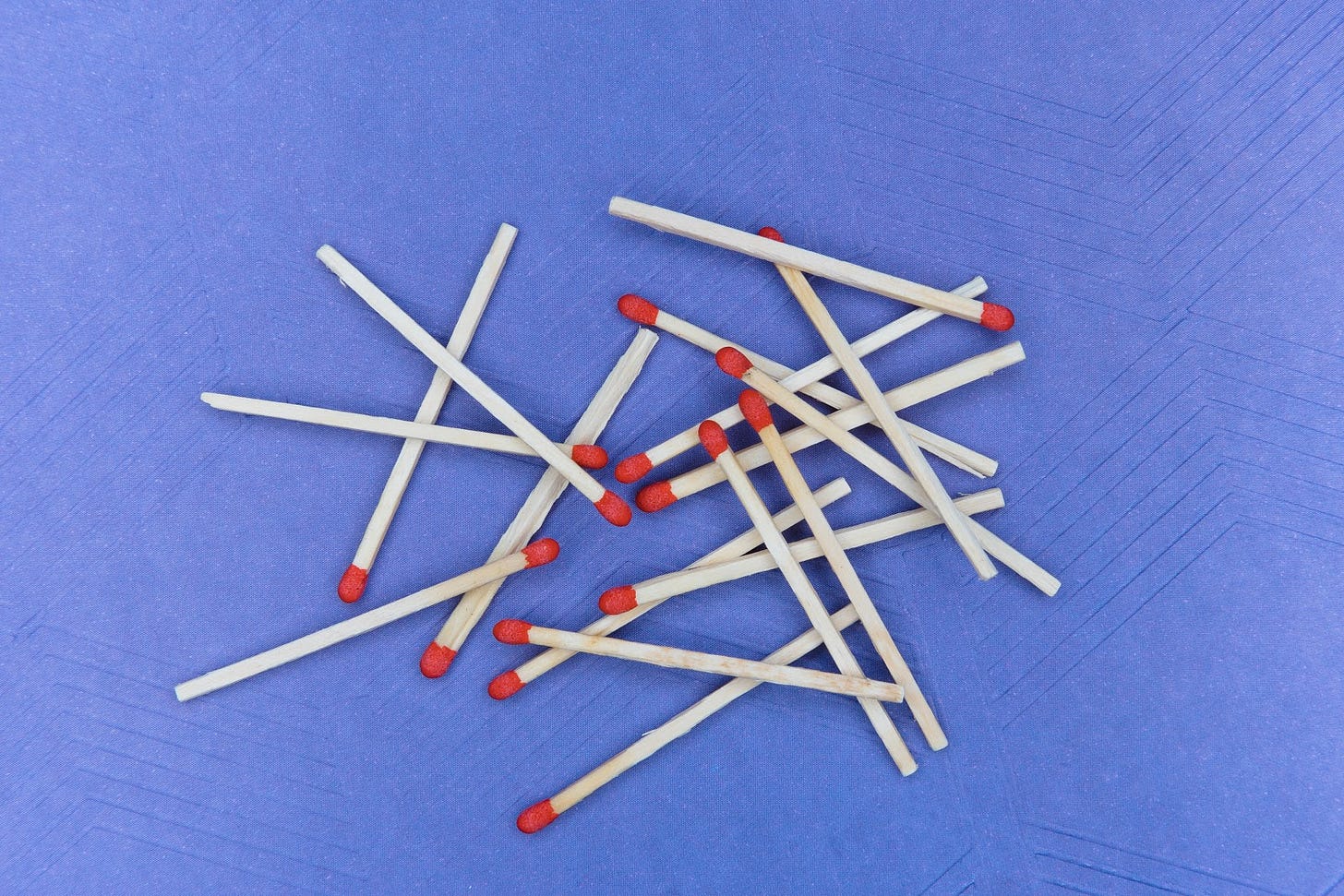This, my friends, will be the last regular newsletter you receive from me for a few months. My due date is in one week, which means I could go into labor any day now! Whenever that happens, I’ll be closing my laptop and turning my attention to our newest family member.
There are plenty of perks to being a freelancer. Paid time off isn’t one of them. Thankfully, I’ve saved up enough to take off three months’ maternity leave. Billy and I were able to cobble together the majority of the money; in order to make up the rest, we asked friends and family to contribute to a parental leave fund in lieu of baby shower gifts.
There was a small part of me that felt embarrassed to ask for money. I worried that it could be viewed as tacky or needy. Still, the longer I thought about it, the more I realized how much more helpful cash would be than yet another cute onesie. (Don’t worry: We have plenty of cute onesies, too!) I was also reminded of the fact that we live in a society where it’s unfortunately become increasingly commonplace for people to start fundraising campaigns to help support their medical costs or get necessary school supplies. Sites like GoFundMe weren’t created to be a social safety net—but they are.

I’ve written before about the fact that I’m the type of person who gets shit done. If you assign me a task, I’ll complete it—and on deadline. In my experience, though, this kind of work ethic doesn’t necessarily lead to promotions. More often, it leads to bosses who are happy to get as much (cheap) work out of you as possible. It also leads directly to burnout.
After many years, many bosses, and many brushes with burnout, I realized that work wasn’t going to change, nor would my get-shit-done tendencies. The best option for me was to give freelancing a shot.
I became a freelancer because I was tired of working in jobs that left me feeling exhausted and underappreciated. Throughout my professional career, I spent far too many days working unreasonably long hours or traveling far too often. I had a decent paycheck and career trajectory to show for it, but—at the end of the day—it depleted me. Work-life balance might be something that some people can achieve; for me, the scales always tipped way over to the work side of things.
I wish I could tell you that freelancing is a cure-all. It isn’t. It brings its own challenges and struggles. I don’t get paid time off or sick leave. I have to provide my own healthcare—which isn’t cheap. Each quarter, I pay thousands of dollars in estimated taxes. (Needless to say, I contribute a hell of a lot more money to our tax system than $750.) Weekdays blur into weekends. This year, I haven’t taken more than one day off in a row since early March.
I’m not complaining, though. I’m much happier freelancing than working a full-time, salaried job. Yes, I have days when I worry about what the future will look like and whether I’ll be able to find enough contract gigs. I miss being able to put up my out-of-office email auto-reply and actually leave an office. I wonder how long I can keep things like this newsletter going, and whether I’ll always feel like I’m scraping together whatever income I can.
Yet, I voluntarily choose all of this. Regardless of sometimes challenging logistics and financial uncertainties, working for myself has been far better than the alternative. I consider myself one of the lucky ones. Sometimes, though, I can’t help but wonder: How did we get here? When did our baseline expectations for work become so low?

For months, I’ve been looking forward to the release of Anne Helen Petersen’s book, Can’t Even: How Millennials Became the Burnout Generation. It’s one of the few books I pre-ordered this year instead of waiting for a library copy; as soon as it arrived on my doorstep, I began devouring it.
Petersen explains that burnout exists beyond the point of exhaustion. “Exhaustion means going to the point where you can’t go any further,” she writes. “Burnout means reaching that point and pushing yourself to keep going, whether for days or weeks or years.”
According to Petersen, millennials like me (I’m considered an “old millennial,” which is a super flattering label!) are prone to burnout for a variety of reasons, including distrust in the institutions that have failed us, the unrealistic expectations of the workplace, and the constant pressure to share and “perform” our lives online.
I expected to see a lot of myself in Petersen’s words, and I did. The chapter “College at Any Cost” reminded me of my high school years, spent obsessively chasing down opportunities that would fit nicely on a college resume. I kept up the same exhausting routine in college—this time, thinking about the competitive internships I’d be applying for. “How Work Got So Shitty,” brought back memories from my early working years—especially hearing the common post-Recession refrain, “You should be grateful you have a job.” The chapter on social media was like listening to a litany of my own anxieties and fears. And “The Exhausted Millennial Parent” read like a mix between a dire warning and a preview of the inevitable.
Still, I know that the burnout I’ve experienced is nothing compared to that of many of my millennial peers. Petersen explains:
We were raised to believe that if we worked hard enough, we could win the system—of American capitalism and meritocracy—or at least live comfortably within it. But something happened in the late 2010s. We looked up from our work and realized, there’s no winning the system when the system itself is broken. We’re the first generation since the Great Depression where many of us will find ourselves worse off than our parents. The overarching trend of upward mobility has finally reversed itself, smack dab into the prime earning years of our lives. We’re drowning in student debt—an estimated $37,000 per debtor—that’s permanently stunted our financial lives. We’re moving in greater numbers to some of the most expensive zip codes in the country, in search of the intense, high-profile job of our dreams. We’re saving far less and devoting far more of our monthly income to paying for childcare, rent, or, if we’re lucky enough to somehow get the money for a down payment, a mortgage. The poorest among us are getting poorer, and those in the middle class are struggling to remain there.

It’s wild to think about how a series of slightly different choices could have drastically changed my standing in life. When it comes to work and finances, I consider myself both privileged and incredibly lucky.
I graduated college in 2007 and landed a job at CNN right before the Great Recession changed everything. Amid several rounds of layoffs at work, I was able to hold onto that job and, as demanding as it was, keep moving up the career ladder. Since I went to a state school on scholarship, I didn’t have student debt to pay down; instead, I was able to contribute to my 401K. My late husband and I bought our first house—a duplex, which meant we became homeowners and landlords—when we were 25. Over the years, I’ve been able to live within my means and save money along the way.
Things could have easily turned out differently. I could have chosen to attend a more prestigious private college rather than a state school, taking out large student loans with the understanding that the price of admission was worth the future success promised to me. If I graduated just one year later, I would have entered a workforce in which it was much, much harder to find a good entry-level job. I could have landed a job on the team that sat right next to mine at CNN—the one where everyone was un-ceremonially laid off in yet another round of “restructuring.” I could have moved to a city where buying property was out of the question, and astronomical rent meant that there was no money left over to save. I could easily, at age 35, be climbing out of a hole of debt, wondering if I’d ever have enough cash to become a homeowner, or take time off for maternity leave.
When I think about these things, I don’t pat myself on the back for working hard and making smart financial decisions. Instead, it feels a bit incredulous—like I dodged bullet after bullet.
It makes me really, really mad that so many of us are in such a precarious spot financially, despite following the rules, going to college, and devoting so much of our time and energy to work. It makes me even angrier that things have become even more precarious this year as COVID-19 has destroyed lives and livelihoods. And my blood boils when I think about the most wealthy people out there—CEOs who have built their wealth on the backs of all of the people who are burning themselves out by just trying to make ends meet.
I wish I could say that I finished Petersen’s book feeling inspired; instead, I walked away feeling even more exhausted by it all. As she succinctly puts it: “There’s no winning the system when the system itself is broken.”
Reading Can’t Even did, however, give me a renewed determination to appreciate the next three months. I’m sure I’ll discover an entirely new level of exhaustion thanks to sleepless nights and the other joys of raising a newborn. But I won’t be responding to emails or tracking down invoices. I won’t be chasing a paycheck or measuring my worth based on how well a tweet performed. I will try to remind myself who I am outside of work. I will reflect on the work habits I want to pass down to my daughter, and what type of energy I want to bring into the new year. I will not be experiencing burnout. At least, I hope that’s the case.
If you, too, are feeling burnout, know that you’re not alone. Consider reading Petersen’s book. Think about the ways that you can prioritize your own wellbeing over work. And, if you need to ask for help, please don’t feel guilty about it. It’s the system, not you.
I’ll see you in 2021, my friends.
xoxo,
KHG
How you cope with burnout
Though millennials may be feeling the brunt of chronic burnout in our current state of affairs, I think it’s safe to say that every person has experienced times of extreme fatigue and existential despair.
Tell me about a time in your own life where you’ve struggled with burnout, and how you dealt with it. Did an unforgiving job environment push you to chase a new career instead? Perhaps you discovered a new passion that got you through a rough patch in your personal life, or sought therapy for the first time. Maybe you’re in the throes of it right now and just want to vent to others who understand and could provide some insight (we have some ~very wise~ readers in our SDB community!).
Share your response by replying to this email, leaving a comment, or sending me a message. My editor, Becca, will compile your replies in Thursday’s subscriber-only newsletter. (And don’t forget! You can receive Thursday newsletters by subscribing for $5/month or $35/year.)
My Sweet Dumb Brain is written by Katie Hawkins-Gaar. It’s edited by Rebecca Coates, who is SO. FREAKING. EXCITED. for Katie and Billy to welcome their little one any day now! Photos courtesy Markus Winkler on Unsplash.
Want to support this newsletter? You can subscribe, share this post on social media, or hit that heart button at the top or bottom of this post. It all helps!
This newsletter contains Bookshop.org affiliate links.





I'm not a millennial (genXer here) but I feel like I battle burnout constantly. In my 20s and 30s, I could mask it by just pushing through and keep moving until a migraine would put me down for a day. These days, it's more like a slow burn.... networking, attending conferences, daily chores, life, the pandemic effect all take a toll. There are times I don't know if I'm just tired and stressed, or burned out, or both. My best combative tool? Get outside and get moving.... shut my phone, shut my computer and focus on nature. It's restorative and energizing. I think finding little moments for self-care are part of the solution. We can't all take a long vacation so finding those moments where we can reboot are crucial.
As a preschool teacher in an elementary school, I love what I do. But it is exhausting, and often glaringly shows where the system is broken. When you see kids who have gone through abuse, whose parents have abused drugs or are in jail, kids who don’t have enough food at home. Kids who have experienced trauma then often have behavior problems at school. It’s exhausting. Trying to help those kids feel safe and loved, and then to learn, is exhausting. Our mental health system is broken. Many of our community and government support systems are broken. Schools and agencies that they partner with often do worlds of work for the families they serve. Yet schools themselves are not funded equally. Teachers’ mental health is often pushed to the back burner. I’m not striving to climb a corporate ladder, but teachers work long hours for what is often scarce recognition. There are times that thinking about the fact I have to teach for 27 more years before I can retire with a decent pension is very discouraging.
On a positive note, I wish you the best of luck with your new arrival!!!